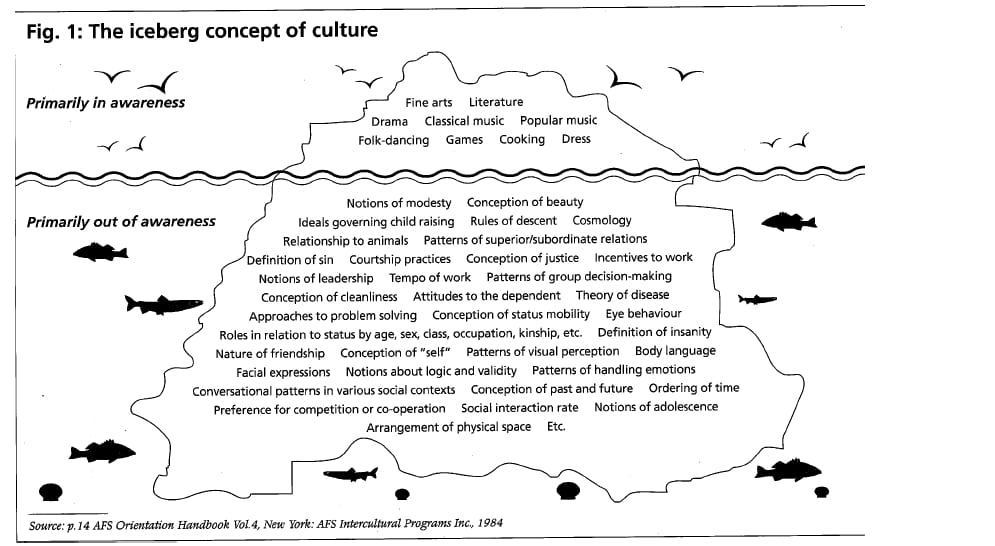Learning objective: Our goal in this class is to not only look at what the cultural practices, traditions, and norms are, but to ask why they came to be. We will be giving you direct feedback on how well you understand cultural diversity. We will be looking at the reasons for and circumstances of particular traditions and practices in order to learn about deep culture. We will think like anthropologists – ie use the research tools of anthropology while learning about the art, literature, music, dance, clothes, and other forms of visible culture. Reflections will also be an important part of the writing you do this semester, as will the intercultural development interview. These allow you to think about not only Turkish culture, but how you think about cultural diversity. We are learning to be cultural learners.
Let’s start by considering one analysis of culture. What do you think of this quote?
“It has long been recognized that culture is very hard for humans to think about culture. Like fish in water, we fail to “see” culture because it is the medium within which we exist.” (Cole, 1996, p. 8)
What is the water? What do we take for granted as understood when we’re in our own culture?
What do you think about this quote?
“Encounters with other cultures make it easier to grasp our own as an object of thought.” (Cole, 1996, p. 8)
Let’s make a word cloud to capture our thinking – https://www.jasondavies.com/wordcloud/
What would you tell someone from another country about culture in your home town?
So. . . Are there aspects of culture we do see?
-
Material Culture
-
Cultural Practices
Write your thoughts down about your own culture and save for the autobiography assignment.
Would anyone like to share?
Visible and Invisible aspects of culture:


As a stateless Palestinian born and raised in Saudi Arabia, it is difficult for me to identify with one culture. I have encountered the Palestinian culture through Palestinians in exile while lived the Saudi culture first hand. If we add the Egyptian culture which most Arabs got exposed to through media and arts, then it is easier for me to identify as an Arab in general rather than to choose a specific Arab country to identify with.
Thanks for sharing! Your experience in multiple Arabic-speaking contexts creates a feeling of Arab identity. Unity through an experience of difference?